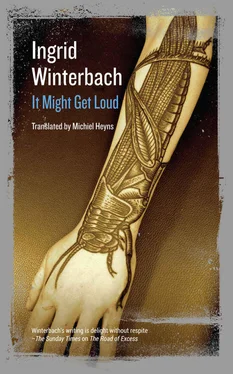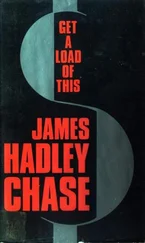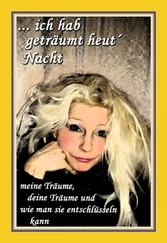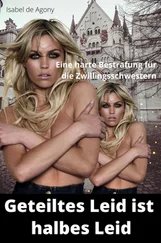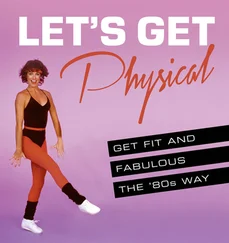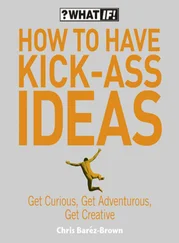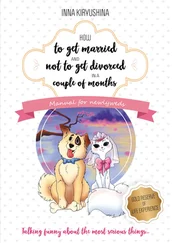If the man hadn’t been such a prick, Maria could have asked him about the change in Sofie. Was it a true change of heart? He won’t know, of that she’s sure. He’ll make a point of not answering her questions. On the face of it he’s accommodating, but behind the scenes a manipulator. A jealous, possessive, mean-spirited man; a second-rate poet, of gigantic ambition and even more grotesque pretension. He had wanted Sofie for himself and when he didn’t succeed, he undermined her subtly in all sorts of ways. That’s how Maria sees it.
When Sofie got up from her bed, after she had lain for a long time with her face to the wall, drinking only water, she dedicated herself with grim determination to pleasure. She was reckless, she took chances. She told Maria how one night high on marijuana she had walked the streets of Hillbrow without an inkling of where the hell she was. Fled from somebody’s bed, high as a kite, she said, totally and completely lost, clueless and mindless. A target for thug and thief. How she made her way to a safe haven remains a mystery. That in the process she wasn’t bashed over the head, raped or strangled or worse.
At this time Sofie read even more than usual. Slept little; read and wrote at night — more purposefully than before: mainly poems, also shorter prose pieces. Listened to Bach and blues — even then her favourite music. From morning till night — from the partitas and fugues to B.B. King’s songs ‘The Thrill is Gone’ and ‘Stormy Monday Blues’.
At a party one evening Sofie whirled like a dervish, her eyes starkly staring. (Unaware of the covert glances of the other people.) Almost thirty years later Maria decides that Sofie had been in a Dionysian rapture that evening. The craving underlying this transport is a desire for levitation and release — or so the lecturer explained it to them in their lecture course. The Dionysian dance is a manifestation of the oldest of all religious impulses — the rebirth of life after a death-like hibernation.
Sofie had quite a few depressive episodes after that, but only got round to ending her life thirty-two years later.
*
Eventually, in the course of the next few days, Maria Volschenk achieves clarity. She will not look a gift horse in the mouth, to put it crudely. She will accept her sister’s book as a gift — that is the light in which she will see it. Since she can’t figure out precisely in what spirit it was bequeathed to her, she will take a conscious decision to accept it in a spirit of humility, meekness and gratitude.
She will glean from it what she thinks applies to her. Perhaps that’s how Sofie felt or intended it, perhaps not, but to Maria it’s clear that she needs once again to be filled with awe and wonderment, and for that, according to the Ten Gates, a scrupulous study of the natural world is essential.
(Also to counteract the painful void that has settled in her head and in the soft organs of her upper belly.)
She will begin by getting versed in the natural world. She will see where everything — from the humblest to the greatest — fits into the realms of the vertebrates and the invertebrates.
This resolution excites her. The next day Maria buys herself a big book — a natural history: the complete visual guide to everything that lives on earth. It is quite clear to her now. She has to start with the life of the eel. The eel, the locust and the spider, the owl and the whale. The fern, the moss, the periwinkle and the lark.
*
Maria Volschenk’s good friend, Jakobus Coetzee, is heard from once more. Pig and goose thrive and multiply here. Whinnying and snuttering, sneering and braying, he reports. A haven for outcasts. With yours truly the actual outlaw, and Josias B as Prometheus or Icarus gone horribly wrong. Fertile soil for a post-modern pastoral novel, for anybody who’s interested. Do feel free to drop in. Lucinda Hlobo is six months pregnant. Who is the father?
*
The woman of the guest house in Colesberg reports that the servant has tracked down the package. (Karl doesn’t want to know where.) Where is he at the moment? she asks. He is in Hanover, his car has broken down, they’re fixing it, he doesn’t know how long it will take. He isn’t perhaps planning to travel via Beaufort West? Yes, he is. Oh, well, in that case, by chance there’s someone who has to go there. The person can take the parcel along and leave it somewhere for Karl, for instance at the Wimpy on the main street. Karl hesitates for a moment. It’s taking a chance. But if he had to travel all the way back to Colesberg, it would delay him even further.
While they’re fixing his car, Karl is sitting in a miserable little café. Josias Brandt phones again. Where is Karl, what’s taking him so long? He’s doing his best to get there, says Karl, there’s nothing he can do about the fact that his car has to be fixed. There is the sound of animals in the background. How is Ignatius? he asks. He’s calmed down somewhat, says Josias, he’s not venturing out of his room at the moment. But Karl must get his act together anyway. There’s a lot of people in this place, children and animals as well, he can’t afford to have unpredictable elements around. And he can’t assume responsibility for Ignatius’s welfare, as he’s explained over and over again. He’s got a lot to do, he’s a busy man. Once again the honking of geese, or the grunting of pigs. No, says Karl, he understands. (Fucking bastard.) What’s he going to do — where is he going to take Iggy in his present condition?
He wanders up and down the streets a few times, but he doesn’t like the desolation of the place and in particular not the lopped cypress trees. Then he has no choice but to go and sit and wait in the café again. He thinks of what the frost-bite chap said. What is he to make of it? He thinks of Stevie, and their enjoyable conversation about the Graspop Metal Meeting, before they were interrupted. It rained that day at the metal meeting in Belgium — in Boeretang near Kasterlee. He has two photos of himself taken there — he wanted a photo of himself with Armored Saint in the background. He asked a chap behind him to take it. A grey day, with Armored Saint’s lovely blazing red and orange logo on a huge screen onstage. Karl is looking over his shoulder at the person taking the photo. Standing next to him is a man with long, curly blonde hair, the back of his T-shirt reads Only Innocence Can Save the World . In the centre of the photo is Joey Vera, bass guitarist, with white singlet and mean mohican, and far right is Jeff Duncan, lead guitarist, with sleeveless T-shirt with red print on the shoulders, half-asleep, it seems. Oh man. The second photo is taken from further back. Little groups of people are sitting and standing around all over the show.
He got near to being beaten up there. Two guys were sort of fighting, then the one guy shoved the other guy so hard that he landed almost on top of Karl. He lost his rag and pushed the guy out of the way. A big bugger, who gets up and comes up to him. Puts his hand on Karl’s head and says: What’s your problem? Don’t shove me, says Karl. So then the guy walked off. Must have seen he was angry.
It was an amazing metal meeting, but by then he was already depressed as hell. He had to wash his hands incessantly. Here, too, the thing with the numbers kicked in. Through that he missed two important train connections — the numbers of the platforms were wrong. When he got home, things started going pear-shaped with him and Juliana. It was clear that their relationship was heading for disaster. She’d lost patience with him. Who could blame her. He frustrates her, he exhausts her, she said (I get the point, he thought), she no longer wants to have to take into account his constant battle to keep himself together — with his depressions and his ablutions and his number-obsessions, with his fussing and his finicking. Her bottom line: Goodbye, I’m on my way, we’ll meet again as soon as you take charge of your emotional baggage. (For sure, he thought, do you think meanwhile I’m not trying my best?) At least everything with Iggy was still okay then. One thing fewer, Karl thought, to fret about.
Читать дальше
